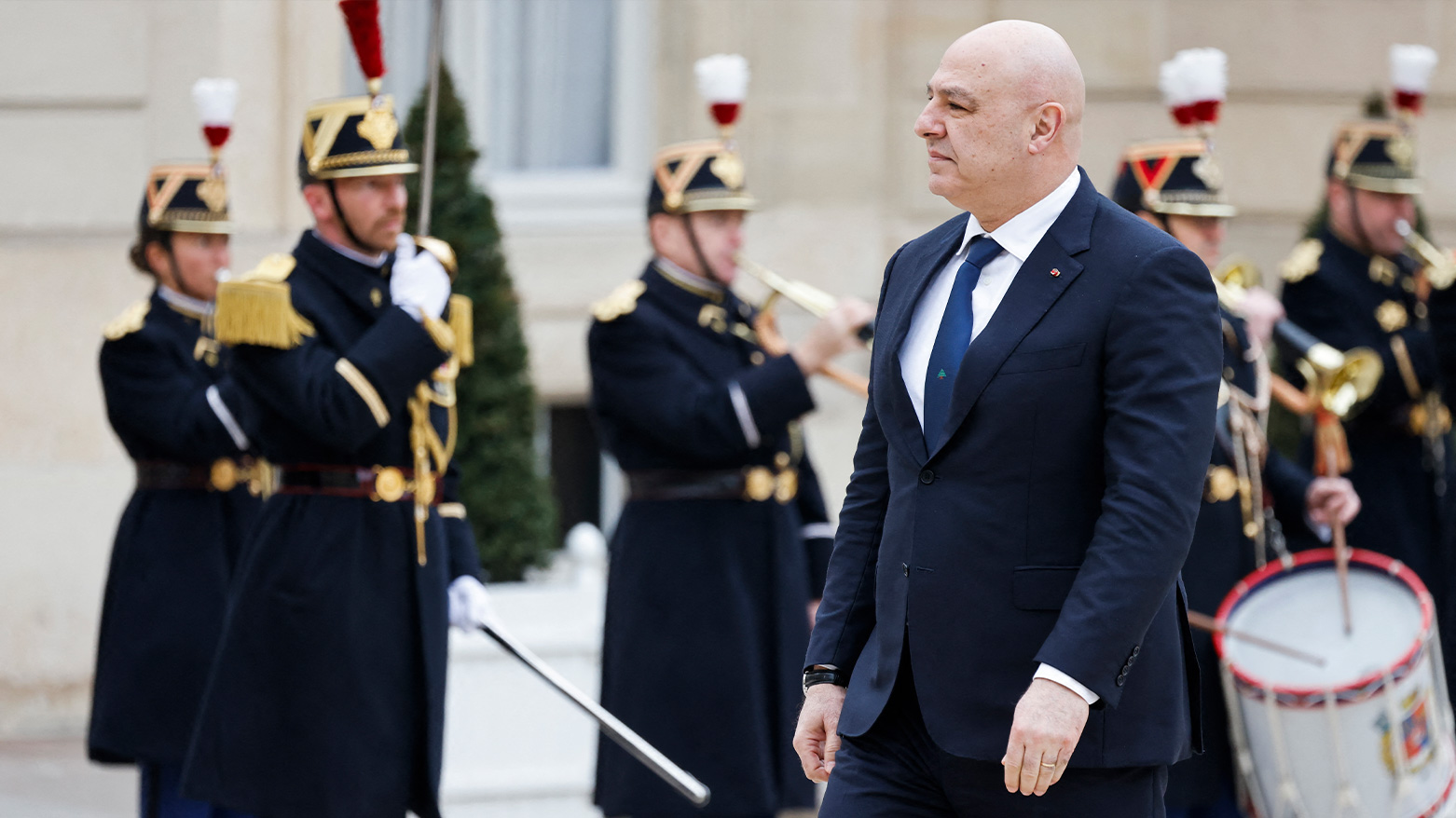Lebanon President: No Iran Flights “For Now”
Asked directly about flights to Iran, which have been suspended amid regional escalations and security concerns, Aoun’s answer was unambiguous: "Not for now. Perhaps one day..."

By Kamaran Aziz
ERBIL (Kurdistan24) - In his first major interview with a Western publication since assuming office, Lebanese President Joseph Aoun emphasized Lebanon's neutrality in regional geopolitics, distancing the country from the so-called "Iranian axis" and ruling out, for the time being, the resumption of suspended flights to Iran.
Speaking to Le Figaro at the presidential palace in Baabda, Aoun also reaffirmed Lebanon's commitment to the full implementation of United Nations Resolution 1701 and sought stronger French and international support for Lebanon's economic and political recovery.
"Lebanon, because of its geography, cannot align itself with any axis," Aoun declared, in a pointed reference to Iranian influence and Hezbollah's entanglements in regional conflicts. He stressed that Lebanon's true strength lies in its internal solidarity and religious diversity. "Our unity is our greatest shield," he said.
Asked directly about flights to Iran, which have been suspended amid regional escalations and security concerns, Aoun’s answer was unambiguous: "Not for now. Perhaps one day..." The remark signaled a cautious distancing from Tehran and its regional network, even as Iran-backed Hezbollah continues to wield substantial influence inside Lebanon.
The Lebanese president also revealed that the country’s security forces have dismantled several camps linked to pro-Iranian or Hezbollah-aligned Palestinian factions. More than 250 weapons seizures and operations have taken place in areas south of the Litani River, with many of the confiscated arms either destroyed or transferred to the Lebanese Army. "The State alone must hold the monopoly on arms and the legitimate use of force," Aoun asserted, echoing the demands of both the Lebanese public and the international community.
While acknowledging that Hezbollah suffered significant losses during its recent confrontations with Israel, Aoun emphasized Lebanon’s full commitment to UN Resolution 1701, which mandates a cessation of hostilities between Hezbollah and Israel. He also criticized continued Israeli violations of the ceasefire. “Hope is slim,” he said, noting that previous ceasefire arrangements—except for the maritime agreement—have largely failed.
To bolster Lebanon's security infrastructure, the Council of Ministers has approved the recruitment of 4,500 additional soldiers. The army, currently numbering 77,000 personnel, is being mobilized not only in the south but across the country to confront weapons smuggling, terrorism, and armed factions.
President Aoun's upcoming visit to Paris underscores Lebanon’s historic and strategic ties with France. "France is our protective mother," he told Le Figaro. "Her support is essential." The visit comes amid mounting pressure on Lebanon to implement structural reforms and unlock critical international financial aid.
Negotiations between the Lebanese government and the International Monetary Fund (IMF) are already underway. Aoun stressed that the proposed reforms—focusing on fighting corruption, lifting banking secrecy, and restructuring the financial sector—are not merely conditions imposed by international donors, but core demands of the Lebanese people. The economic damage from Lebanon’s conflict with Israel is now estimated at $14 billion, up from the initial $11 billion projection by the World Bank.
Aoun is also working to redefine Lebanon’s relations with neighboring Syria, including the return of Syrian refugees. However, a scheduled meeting between Lebanon’s and Syria’s defense ministers was recently postponed and is now expected to take place in Jeddah under Saudi auspices. While refusing to comment directly on Syria’s new leadership, Aoun emphasized that Lebanon does not interfere in the internal affairs of other nations.
As Lebanon enters what many hope will be a new era, Aoun’s presidency and the recent appointment of Prime Minister Nawaf Salam reflect a shift towards national cohesion and institutional rebuilding. "We are working to build a true sense of citizenship," Aoun said. "It is the State that protects us—not our sect."
With a message that blends realism with resolve, President Aoun is seeking to chart a path for Lebanon away from factionalism and foreign entanglements, and towards sovereignty, reform, and stability. Whether this new course will endure amid Lebanon’s deep political divides and economic crises remains to be seen, but Aoun's stance on Iran and his call for neutrality signal a defining pivot in Lebanese diplomacy.
